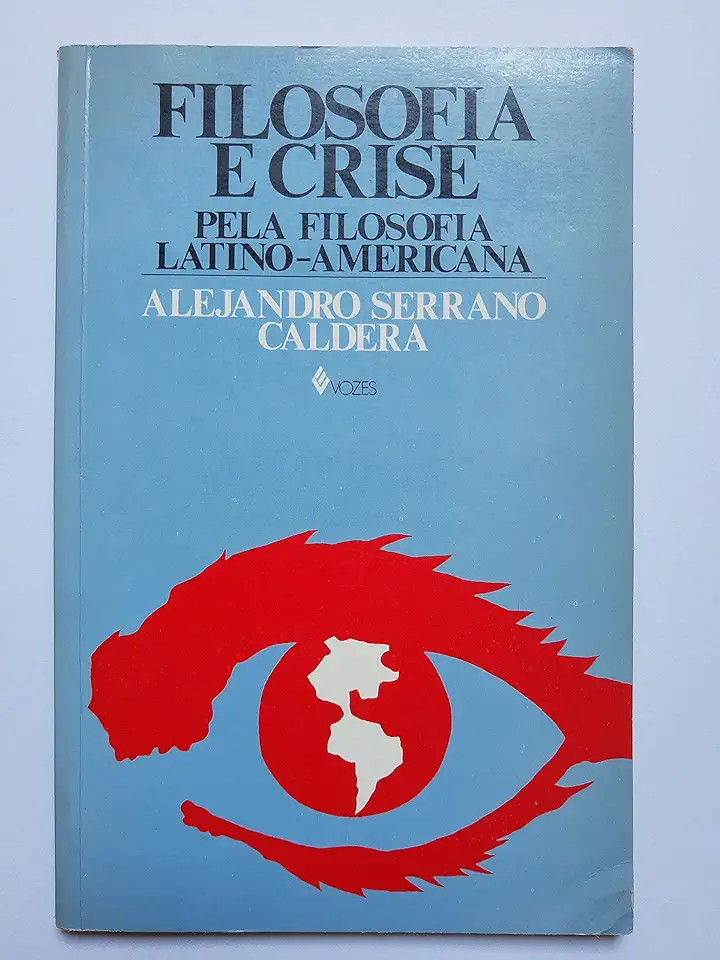
Philosophy and Crisis by Latin American Philosophy - Alejandro Serrano Caldera
Philosophy and Crisis by Latin American Philosophy - Alejandro Serrano Caldera
A Profound Exploration of Philosophy and Crisis in Latin America
In the captivating book "Philosophy and Crisis by Latin American Philosophy," Alejandro Serrano Caldera embarks on an intellectual journey that delves into the profound relationship between philosophy and crisis in the context of Latin America. With meticulous research and insightful analysis, Caldera presents a comprehensive examination of the ways in which philosophical thought has grappled with the challenges and complexities of the region's history, culture, and society.
Unveiling the Essence of Latin American Philosophy
Caldera begins by establishing the unique characteristics of Latin American philosophy, highlighting its distinct perspectives and contributions to the global philosophical discourse. He argues that Latin American philosophy is not merely a derivative of European thought but rather a vibrant and independent intellectual tradition that has emerged from the region's unique experiences and struggles.
Crisis as a Catalyst for Philosophical Reflection
Central to Caldera's analysis is the notion of crisis as a catalyst for philosophical reflection. He contends that moments of crisis, whether political, economic, or social, have served as fertile ground for the development of philosophical thought in Latin America. These crises have prompted philosophers to confront fundamental questions about identity, justice, democracy, and the nature of society, leading to the emergence of innovative and transformative ideas.
Key Themes and Thinkers
Caldera explores a wide range of key themes that have shaped Latin American philosophy, including:
The search for identity: Philosophers have grappled with the question of what it means to be Latin American, exploring the region's diverse cultural heritage and the challenges of forging a unified identity amidst historical divisions.
Social justice and liberation: Latin American philosophers have been deeply concerned with issues of social justice and the liberation of oppressed peoples. They have developed influential theories of liberation theology, dependency theory, and participatory democracy, which have had a profound impact on political thought and social movements in the region.
The role of culture and tradition: Philosophers have examined the role of culture and tradition in shaping Latin American societies, exploring the tensions between indigenous traditions, European influences, and the emergence of new cultural forms.
The relationship between philosophy and politics: Latin American philosophers have engaged in a continuous dialogue with politics, seeking to understand the relationship between philosophical ideas and the practical challenges of governance and social transformation.
Throughout the book, Caldera highlights the contributions of prominent Latin American philosophers, including José Martí, Simón Bolívar, José Vasconcelos, Leopoldo Zea, Enrique Dussel, and Paulo Freire. He provides insightful analyses of their philosophical ideas and their impact on the intellectual and political landscape of the region.
A Call for a New Latin American Philosophy
Caldera concludes by calling for a new Latin American philosophy that is rooted in the region's unique experiences and challenges. He argues that such a philosophy should be critical, transformative, and committed to the pursuit of social justice and human liberation. By embracing the lessons of the past and engaging with the complexities of the present, Latin American philosophy can continue to play a vital role in shaping a more just and equitable future for the region and the world.
Why You Should Read "Philosophy and Crisis by Latin American Philosophy"
"Philosophy and Crisis by Latin American Philosophy" is a must-read for anyone interested in Latin American studies, philosophy, and the intersection of theory and practice. Caldera's erudite and engaging writing style makes complex philosophical concepts accessible to a wide audience, while his insightful analysis provides a fresh perspective on the region's intellectual history. This book is a valuable resource for scholars, students, and anyone seeking a deeper understanding of the philosophical foundations of Latin America's past, present, and future.